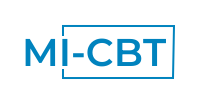Implementing a MI-CBT Intervention to Support Veterans with Schizophrenia
Background
Our team along with others at the VA Greater Los Angeles Healthcare System sought to evaluate the feasibility of a novel psychosocial intervention that combined two evidence-based practices—Motivational Interviewing (MI) and Cognitive Behavioral Therapy (CBT)—for the treatment of motivational negative symptoms among a cohort of Veterans with schizophrenia.
Negative symptoms are a primary cause of poor functional outcomes in schizophrenia for which there are no established pharmacotherapies. Motivational negative symptoms may interfere with obtaining and maintaining employment, forming social relationships, and living independently.
The intervention targeted motivation by addressing defeatist beliefs, cognitive ambivalence, reward salience, and behavioral activation. Our team hypothesized that the recovery-based intervention to reduce ambivalence and defeatist beliefs would result in continued improvements in motivational functional gains and negative symptoms.
Negative symptoms experienced by people living with schizophrenia can include not wanting to look after themselves and their needs, such as not caring about personal hygiene; feeling disconnected from their feelings or emotions; and wanting to avoid people, including friends.
As part of the study, our team developed and tested the MI-CBT facilitation manual made available on our website.
Implementation/Evaluation Strategies
Seventy-nine participants ages 20 to 55 years old with schizophrenia and moderate to severe negative symptoms were enrolled in a 5-year randomized controlled trial. Participants were randomly assigned to the MI-CBT treatment or a control treatment for weekly 1-hour sessions for 12 weeks. Each participant was engaged in the study for a period of six months.
Assessments were administered at baseline, at completion of treatment, and at 3-month follow-up. The primary outcome measures were motivational negative symptoms and community functioning.
Results
Our results showed that MI combined with CBT yields improvements in negative symptoms, a feature of schizophrenia generally thought of as resistant to intervention. Motivational negative symptoms not only responded to the novel treatment, but the gains were maintained over the follow-up period.
Future research from our team may include studies implementing MI augmented with CBT for motivational deficits in other populations of Veterans, such as traumatic brain injury and post-traumatic stress disorder, and to examine predictors of treatment response in new groups.
Cite:
Reddy, L. F., Glynn, S. M., McGovern, J. E., Sugar, C. A., Reavis, E. A., & Green, M. F. (2023). A Novel Psychosocial Intervention for Motivational Negative Symptoms in Schizophrenia: Combined Motivational Interviewing and CBT. The American journal of psychiatry, 180(5), 367–376. https://doi.org/10.1176/appi.ajp.20220243
*Note: The facilitation manual is the product of a VA Career Development Award (IK2 RX001851) that implemented and evaluated MI-CBT for Veterans with Schizophrenia and a Center award (# I50 RX003437 / D3437-C) that evaluated MI-CBT for homeless-experienced Veterans engaged in the Grant Per Diem Case Management Grant Programs affiliated with the VA Greater Los Angeles Healthcare System.
MI-CBT Intervention to Enhance Community Integration Among Recently-Housed Veterans
Background
In a separate, ongoing 2-year study, our team adapted the above intervention for a population of recently-housed (previously chronically homeless) Veterans engaged in the Grant Per Diem Case Management Grant Programs affiliated with the VA Greater Los Angeles Healthcare System.
Our team aimed to help participants reach their community integration goals (e.g., finding employment, making friends, securing transportation) by addressing motivational deficits.
Implementation/Evaluation Strategies
In this Randomized Control Trial, 60 recently-housed Veterans were randomly assigned to the Motivational Interviewing-Cognitive Behavioral Therapy (MI-CBT) intervention or Treatment as Usual (TAU). Veterans randomized to the intervention met weekly (in-person or virtually) with a study therapist for 12 weeks and then met for three monthly booster sessions.
Master’s level clinicians delivered the intervention with training and consultation from the study team.
Key Takeaways
Our team is currently analyzing the data we collected during the intervention; however, key takeaways have emerged. We found that bolstering participants with clinician support during a time of housing transitions may increase the likelihood of maintaining positive momentum and successfully managing vulnerabilities.
In addition, the intervention provided a structure for additional clinical engagement that worked well for both Veterans and clinicians. Importantly, Veterans were eager to engage in the project and were grateful for the support they received.
Our forthcoming study results will be published in peer-review journals and made available on the Publications page of MI-CBT Guide.

